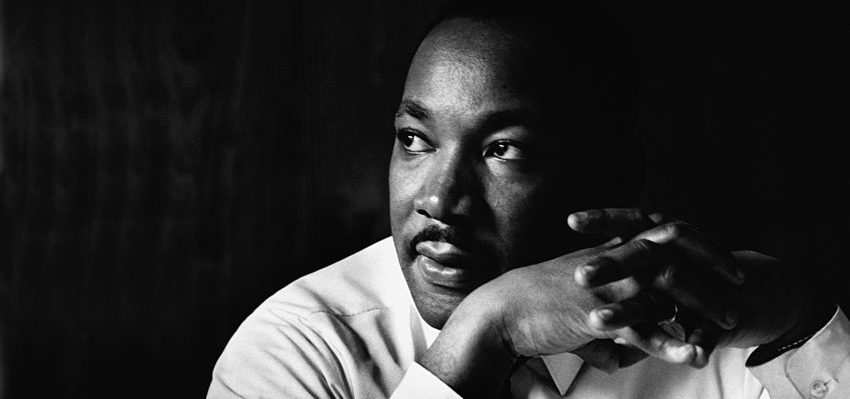 In this week's column, @DanODonnellShow writes about how a shocking revelation about Dr. Martin Luther King, Jr. may force a rethinking of how we judge our cultural heroes. Click To Tweet
In this week's column, @DanODonnellShow writes about how a shocking revelation about Dr. Martin Luther King, Jr. may force a rethinking of how we judge our cultural heroes. Click To Tweet
May 29, 2019
Special Guest Perspective by Dan O’Donnell
The sad truth about heroes is that they will inevitably disappoint. They are human after all and, as such, every bit as fallible as those who idolize them. With that disappointment comes an inescapable hurt, and over the past few years, it has manifested itself in an intense desire to tear down the very pedestals on which we placed our fallen heroes.
“Cancel culture” has mandated the wholesale removal of any monument to any man deemed iniquitous by modern progressive standards.
Spurred on by a political left seeking to rebuild America from the ashes of its slave-holding, colonialist, misogynistic founding fathers, “cancel culture” has mandated the wholesale removal of any monument to any man deemed iniquitous by modern progressive standards.
What, then, are we to do with Dr. Martin Luther King, Jr.—a quintessential American hero beloved by the right and all but deified by the left?
David Garrow, who won a Pulitzer Prize for his 1986 biography of King, alleges in the British magazine Standpoint that King not only had upwards of 40 extramarital affairs, but also watched as a fellow pastor raped a parishioner.
Citing long-sealed FBI files from the 1964 wiretapping of King’s hotel room in Washington, D.C., Garrow claims that King and Logan Kearse, a Baptist pastor from Baltimore, “discussed which women among the parishioners [they had brought back to the room with them] would be suitable for natural and unnatural sex acts.”
Shockingly, “when one of the women protested that she did not approve, the Baptist minister immediately and forcefully raped her.” King, the FBI documents allege, “looked on, laugh[ed] and offered advice.”
The Daily Mail reports that FBI agents were listening in from the next room but did nothing to stop the alleged assault.
The agents’ report claims that the following day, King, Kearse, and roughly a dozen other people took part in a “sex orgy” that featured “acts of degeneracy and depravity.” When one woman expressed her reluctance to take part, King assured her that doing so would “help [her] soul.”
Such surveillance of civil rights leaders was sadly common, as FBI director J. Edgar Hoover feared communist infiltration in their ranks. Sickeningly, senior FBI leaders tried using the hotel recordings to blackmail King, calling him an “immoral beast” in a letter to him that urged him to commit suicide since his sexual deviance would be “on record for all time.”
While this might call into question the veracity of these agents’ claims, Garrow—considered one of the world’s foremost experts on King’s life—believes them to be accurate and pose “so fundamental a challenge to his historical stature as to require the most complete and extensive historical review possible.”
In the context of modern progressivism, this means asking the question that no American really wants to: Should Martin Luther King, Jr. be cancelled?
In the context of modern progressivism, this means asking the question that no American really wants to: Should Martin Luther King, Jr. be cancelled? Should his monument in Washington, D.C. (just miles from the rape he allegedly took part in) be torn down? Should the roughly 1,000 streets and 77 schools that bear his name be rechristened? Should his holiday each January be rededicated to the victims of sexual assault?
If unproven allegations of sexual assault and orgies were enough to disqualify Brett Kavanaugh from serving on the Supreme Court (or any court, for that matter), then shouldn’t the feminist movement similarly demand an end to the veneration of Martin Luther King? If allegedly fathering children with a slave is enough to stain Thomas Jefferson’s contributions to Western civilization, then shouldn’t King’s purported encouragement of rape forever taint the movement he led?
Or will society declare its independence from the rigid dogmatism of cancel culture? Just as King dreamed of an America that could see morality in more than black and white, is it now possible for us to view our heroes in shades of gray?
While standards of morality may change over time, the allegations against King (if true) strike at the very essence of the content of his character. This is perhaps why Garrow’s discovery of the sealed FBI files has been all but ignored in the American press: No one wants to believe it…and if they do, they certainly don’t want to publicize it.
It’s easy to virtue signal outrage by demanding streaming music services drop a pop singer with a sex cult or suspicions of pedophilia. It’s politically expedient to discredit Confederate generals or old, white founding fathers. But can we really apply those same standards to Martin Luther King, Jr.?
This uncomfortable question reveals an even more uncomfortable truth: We stand at the precipice of a cultural reckoning—either of King’s legacy or of cancel culture itself.